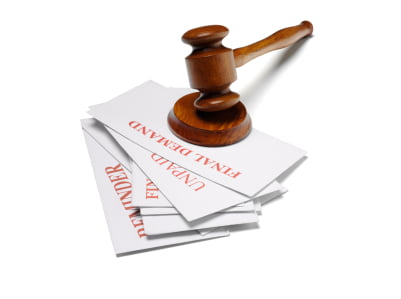What to Do If Your Wages or Unemployment Benefits Are Garnished: Wage garnishment can add extra stress when you’re already financially overwhelmed—especially if you’re unemployed and counting on every dollar to make ends meet. If you’ve fallen behind on debt, creditors may legally seek repayment by garnishing your income. But you still have rights—and knowing them is key to protecting your finances.
Understanding Wage Garnishment and Your Legal Rights
Wage garnishment is a court-ordered process that allows a creditor to collect money directly from your paycheck or bank account to satisfy an unpaid debt. Creditors must first sue you and obtain a judgment in their favor before garnishment can proceed.
Important: Under the CARES Act, which began March 13, 2020, federal benefits such as IRS refunds and stimulus checks cannot be garnished for unpaid debts, offering temporary relief during the COVID-19 crisis.
Can Unemployment Benefits Be Garnished?
✅ Unemployment Benefits Are Largely Exempt
In most states, unemployment benefits cannot be garnished for consumer debts like credit cards or medical bills. However, exceptions apply:
-
Severance pay from a former employer can be garnished.
-
Debts like child support, student loans, and unpaid taxes are not protected and can trigger garnishment of unemployment benefits.
To protect your benefits, it’s smart to deposit them into a separate bank account not linked to other income sources.
What Happens If You’re Sued for a Debt?
Once a creditor files a lawsuit and wins, the court may issue a garnishment order. Here’s what happens next:
-
You’ll receive advance notice and a court date.
-
Failing to appear in court can result in an automatic ruling against you.
-
Once approved, garnishment begins—usually through your employer.
If you change jobs, the creditor can pursue another garnishment order with your new employer.
⚠️ Joint Bank Account Risks
If your wages are garnished and you share a joint account with a spouse, creditors may legally access that account—even if part of the funds belong to your spouse. This makes it essential to separate protected income like unemployment into its own account.
How Wage Garnishment Affects Employment
When garnishment begins, your employer is notified, making your financial issues public at work. While employers are not legally allowed to fire you for one wage garnishment, multiple garnishments can sometimes affect job security.
How to Respond to Wage Garnishment
If you’re facing the threat of wage garnishment, take immediate action:
1. Consult an Attorney
Legal advice is vital. An attorney can help you:
-
Respond to lawsuits
-
Claim exemptions (e.g., Social Security, unemployment)
-
Negotiate debt settlements or payment plans
2. Request a Hearing (If Available)
Some states allow you to challenge the garnishment in court if:
-
The amount is incorrect
-
You weren’t properly served
-
The income being garnished is legally protected
3. Communicate with Creditors
If you act early, some creditors may be willing to set up a repayment plan without going to court.
Tips to Protect Your Income and Credit
-
Never ignore debt collection lawsuits—respond before the court date.
-
Keep essential funds in a separate account to safeguard exempt income.
-
Monitor your credit report to track legal actions or garnishments.
-
Seek nonprofit credit counseling to manage debt and create a budget.
Final Thoughts on Wage Garnishment and Financial Protection
Wage garnishment is a serious issue, but it’s not the end of your financial road. Knowing your rights, getting legal help, and staying proactive can help you minimize damage and protect your income. If you’re facing garnishment or suspect it’s on the horizon, now is the time to act—before your paycheck is impacted.
FAQs
Can creditors garnish my unemployment benefits?
Generally, no. But garnishment is possible for debts like child support, taxes, or student loans.
What if I share a bank account with someone else?
Creditors may still access joint accounts, even if funds belong to your spouse or another party.
How do I stop a wage garnishment?
You may challenge it in court or negotiate a payment plan with the creditor. An attorney can guide you.
Will my employer know if I’m being garnished?
Yes. Employers are notified by court order and must comply with the garnishment request.
Can I get a refund if my wages were garnished unfairly?
It’s possible, but you must file a legal challenge quickly. Time is of the essence.










